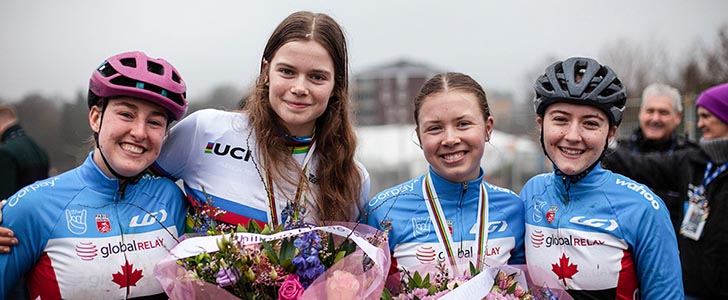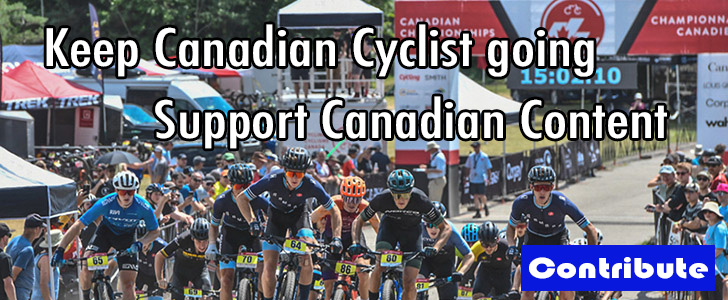April 9/01 11:35 am - CCA Espoir Camp Week 2
Posted by Editoress on 04/9/01
CCA National Espoir Development Camp
National coach Jacques Landry has sent through another report on the national Espoir camp being held in the U.S. For those interested in furthering their cycling careers it is an interesting read.
Shenandoah Acres Resort, Virginia, USA
WEEK 2
The second week of the national Espoir development camp started with a day of testing. Using the CCA Maximum Aerobic Power testing protocol all athletes went through the test that would 'ramp' them up to a muscular and cardio-vascular maximum. Before, during and after the test it was common to hear the riders say that they had not completely recovered from the hard 5h30 ride two days prior.
Aside from the testing that usually takes less than half an hour per session, most went out for 2h00 spin; as it was a nice day.
After the day of testing and the individual testing analysis done by Neil Ross, and myself, the riders went on yet another recovery ride.
On the Wednesday, it was time to unleash the hard distance day again. Although this long endurance ride qualified as being as hilly as the last one, speed work components were added to the ride for an added challenge. The ride lasted 4h30; however some did go longer to appease their conscience because, physiologically, it made no difference.
The Thursday ride was one of recovery as the athletes went on training at different times of the day.
In the afternoon, a former coach of mine and friend, by the name of Neil Stewart dropped in to catch up on a few things and also to see the riders and offer his valuable input; as he has worked with pro-riders and up and coming development riders in the United States. As a matter of fact, Neil has worked with Gord Fraser at different times throughout this sprinters career.
After the Thursday rest day, it was time (on Friday morning) to get some leg speed back after these two weeks of riding on semi-mountainous terrain. So a team time trial type interval session was just what the doctor ordered for the riders selected to race in Europe in 10 days. For some, this session was used as an eye opener. To think that speed they were going at is 10 km.h slower than in a Euro race when the pack is lined up in a deathline...
As Neil Stewart was watching these efforts, it was great to get his reading on a few riders...
Friday, the day before the official end of the camp, was a day of recovery, cleaning up and getting the trip back home organized. As the weather was so-so, it was a good day to do get everything ready to go.
As this camp closes, I must say that it was a learning opportunity for the riders and myself. Also, if only for the sake of uniting and creating bonds between East and West riders, this camp had its purpose.
However, on a training note, I have detected that there are some athletes that are stuck in a more is better attitude that will more than likely fail them in the long run. Not only is it a "more is better attitude", but a "more of what I'm good at and avoid what I hate" attitude. For example, what if a rider is leading the GP de Beauce overall because he has good climbing abilities and then the ITT and Criterium stages come up, what happens to a pure climber? He risks loosing his overall lead because he has no leg speed and is unable to ride technical criterium; qualities that he has never worked on because he's never liked that type of work. To bad, he just lost the stage race!!!
Road cycling is an adaptation sport and that is why riders are sent to Europe to get used to the international rhythm. However, there is a minimum of training needed to prepare the adaptation period or else when a rider gets to Europe he gets dropped from the group early on and ends up in small laughing group until the end. Where is the adaptation there?
It is the coaches' responsibility to get a rider ready for races, mentally and physically. It is the riders' responsibility to trust the coaches' expertise. If there is no trust, the coach may as well be speaking mandarin, the athlete will still be digging a hole for himself/herself and there is almost nothing than can be done on the coaches' side.
In closing, it is my feeling that there must be a bond created between the athlete and the coach. If the athlete does not have a coach, he should at least have somebody he trust that has expertise and that can steer the rider in the right direction if he goes off course. That is also a part coaching!
Jacques Landry
National Development Coach
| Return to Canadian Cyclist homepage | Back to Top |





